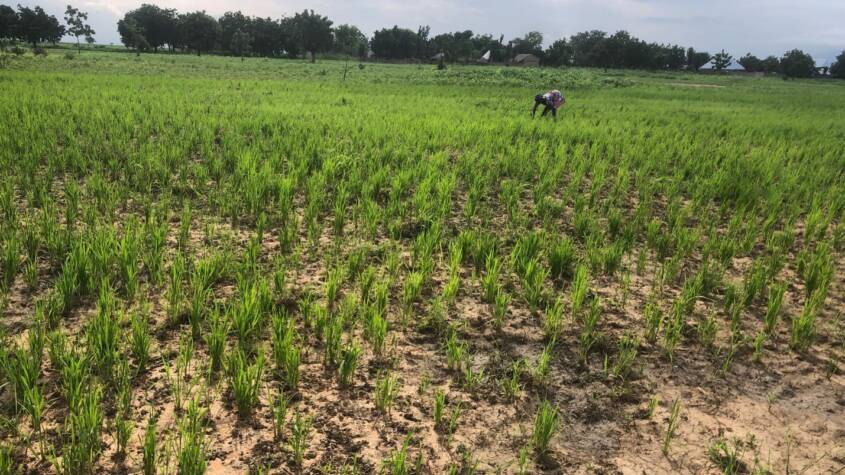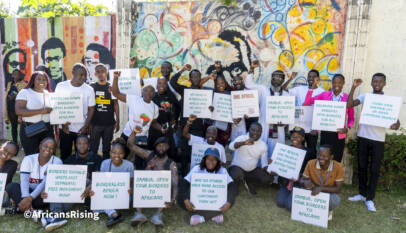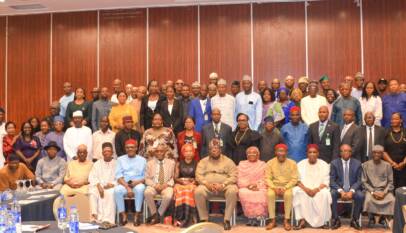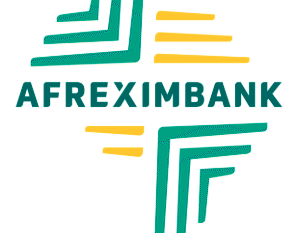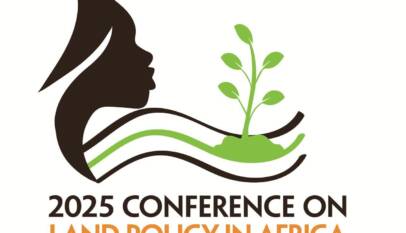Climate-Smart Seeds Help Women Farmers Weather Floods in Nigeria’s Northeast
After years of seeing their crops washed away by floods, women farmers in Northeast Nigeria are rebuilding resilience with climate-smart seeds.

For 29-year-old rice farmer Kifinga Polycarp from Guyuk, Adamawa State, in northeastern Nigeria, farming was meant to be her path to prosperity. Armed with an HND qualification, she believed her education gave her an edge over many local farmers with little or no formal schooling.
Filled with enthusiasm, she began farming three years ago, shortly after her marriage. But her optimism was short-lived. By February 2024—barely a year into her journey—floods fueled by climate change devastated her farm, sweeping away not only her investment but also her dreams.
“In 2024, I cultivated half a hectare of land and harvested only nine bags of rice. The seeds I bought were poor, and floods destroyed almost everything. It was such a bad investment that I cried bitterly at night. The losses were devastating—money meant for my son’s education had gone into farming. My husband was furious, and I even thought of abandoning farming to open a small chemist,” Polycarp recalled.
Her fortunes began to shift when she was introduced to a seed multiplication service managed by Girmal Seed Company, one of Propcom+’s local partners in Adamawa. Through this service, hundreds of farmers in Guyuk and neighbouring communities gained access to climate-smart seeds bred to withstand floods and other climate shocks. For Polycarp and many others, these seeds offered more than resilience—they restored hope and renewed belief in farming as a viable source of livelihood.
Propcom+, funded by the UK’s Foreign, Commonwealth & Development Office (FCDO), works with local actors to scale Climate-smart Agriculture (CSA) across Nigeria. Its seed multiplication model ensures that high-quality, resilient seeds reach even the most remote farming communities. By supplying certified, improved varieties, the initiative not only improves yields but also rebuilds farmers’ confidence in agriculture.
Polycarp was linked to this system through Rural Seed Promoters (RSPs)—micro-entrepreneurs who bridge the gap between seed multipliers and smallholder farmers. Seed multiplication enables the large-scale production of climate-resilient seeds that can withstand floods, pests, and erratic rainfall. Through Girmal, she received improved rice seeds such as Faro 44—and the results were nothing short of transformational.
“Last year, I harvested fewer than 10 bags. But this year, with the new seeds, I got in over 68 bags. Even if I had opened a chemist, I couldn’t have earned that much in half a year. Now, my son’s school fees are secured, and I feel proud again—as both a farmer and a mother,” Polycarp said with a fulfilling smile.

Boki’s Turning Point
For 33-year-old Tsimthe Boki, a mother of three from Baniram community in Adamawa, farming had long been defined by struggle and sacrifice. Repeated floods devastated her fields, pushing her to travel 55 kilometers to Bargu in neighboring Borno State in search of seeds she hoped would withstand flooding. But the seeds she purchased from an agent turned out to be substandard, leaving her with another season of disappointment.
“I barely harvested 13 bags of rice. That bitter experience made me distrust agricultural agents. Many are only after money,” she said with a hint of regret.
Her turning point came when she discovered Girmal, which supplied certified climate-smart seeds at just ₦7,000 per 50kg bag—far more affordable than the ₦30,000 she had previously paid. Though skeptical at first, Boki was reassured by Girmal’s model: not only did it provide resilient seeds, but it also guaranteed market linkages and a buy-back arrangement at above-market rates after harvest.
“That was my turning point. I harvested more than 75 bags last season on just one hectare. Farming is no longer guesswork—it’s now my career. Next season, I will cultivate three hectares,” she declared with pride.
Her story reflects a wider crisis. Flooding remains one of the gravest threats in Nigeria, where over 1.5 million hectares of cropland have been destroyed across 29 states, affecting more than 9 million people. In 2022 alone, floods ravaged 110,000 hectares of farmland and left 400,000 children in northern Nigeria facing severe acute malnutrition due to food insecurity.

Climate-Smart Seeds Restore Sarah’s Hope
Like Polycarp and Boki, 46-year-old Sarah Christopher, a farmer of 21 years, had nearly given up. “I said that if these climate-smart seeds didn’t work, I would quit farming and sell my tools.”
But her doubts soon gave way to pride when the seeds delivered abundant yields and matured faster than the local varieties she had relied on for decades. Beyond the seeds, Christopher values the support system surrounding them—flexible payment options, occasional doorstep delivery, extension services, and practical advice on farming techniques.
“My hope has been strengthened,” she said with a renewed sense of confidence in farming.

Girmal: Transforming Rural Farming
Maliki Daniel, Managing Director of Girmal Seed Company, says the seed multiplication model is reshaping agriculture in Adamawa and neighboring states, thanks to support from Propcom+.
“We provide outgrowers with foundation seeds from research institutes. Their yields become certified seed, which we buy back at above-market rates— for example, ₦65,000 compared to ₦60,000 in the open market. This guarantees farmers both quality seeds and a steady income. Skeptical farmers like Boki are now convinced because they see the performance on their fields,” he explained.
By sourcing seeds from trusted institutions such as Ebonyi State University and partnering with Propcom+, Girmal guarantees access to reliable and productive seeds for its buyers. The model not only boosts yield but also improves incomes and strengthens livelihoods for smallholder farmers across the region.
Propcom+: Bridging Innovation–Practice Gap in CSA
Dr. Adiya Ode, Country Representative and Political Director for Propcom+, says the programme’s CSA interventions are designed to close the gap between research innovations and everyday farming practices.
“The CSA model tackles the limited supply of improved seeds, inadequate extension services, and lack of finance. By equipping outgrowers with technical and input support, we ensure seeds are adapted to local environments and trusted by local farmers,” she explained.
Dr. Ode says Propcom+ also places inclusivity at the centre of its work, particularly for vulnerable groups. “We aim to transform the lives of 3.79 million smallholder farmers by 2030, with 50% of beneficiaries being women or women-led SMEs.”
For farmers like Polycarp, Boki, and Christopher, the despair of failed harvests has given way to resilience and renewed confidence. What once felt like an endless struggle against floods is now a story of abundance. The Propcom+ model shows that when innovation is rooted in local practice, farmers are not just surviving climate change—they are thriving in spite of it.
As climate change continues to endanger food security in Nigeria’s northeast, these stories prove that solutions already exist. With access to climate-smart seeds, farmers can rebuild livelihoods, nourish families.

